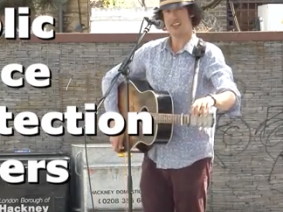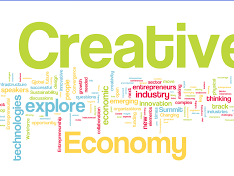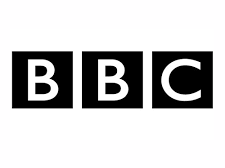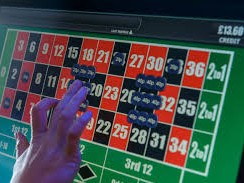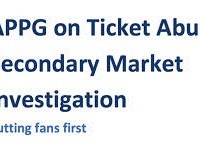In a speech in the House of Lords recently I highlighted the problems faced by museums and galleries and the need to go further than the recommendations made by Neil Mendoza in his report last December.
My Lords, we have heard an impressive range of speeches in this debate which have demonstrated the enthusiasm of this House for museums and galleries but also, I am sad to say, illustrating many of the severe problems that they face. I must congratulate that great heritage champion, the noble Lord, Lord Cormack, on instituting this timely debate. It is only too rare that we discuss this sector which, as we have heard, makes a great contribution to our culture, our creative economy, our tourism economy, to social well-being and the quality of our lives, and to our communities. I was taken by the description of the noble Lord, Lord Monks, of museums and galleries being a stimulant for creativity and innovation, and by what the noble Lord, Lord Rees, had to say about the ongoing impact on why people eventually do what they do; it is not purely down to the schools and universities they go to. Like him, I declare a strong interest not only as a regular visitor to national museums—only last night I was at the Science Museum for “Tomorrow’s World Live”, which was pretty exciting—but to university museums as the chair of the Queen Mary University of London Council. If any noble Lord has a slight taste for the macabre, it is certainly worth while going to see the astonishing Barts Pathology Museum in the West Smithfield campus.
As the National Museum Directors’ Council points out, eight out of the 10 most popular attractions in the UK are national museums, and 51.3% of UK adults visited a museum or gallery in 2012. But as the noble Lord, Lord Cormack, made clear, inevitably the context for today’s debate was provided by the Mendoza review published last November, entitled An Independent Review of Museums in England. Before that, we had the Government’s ambitious Culture White Paper and the Culture, Media and Sport Select Committee report in December 2016. At the time of the Select Committee’s report, the then Minister for Culture, Mr Matt Hancock MP, who is now the Secretary of State of course, said that he supported the aims of the White Paper and that he would continue putting its recommendations into practice, so I take some comfort from that.
The Select Committee and the Culture White Paper both emphasise the need for access, diversification and partnership working. I say “hear, hear!” to that. The principal recommendations set out in the Mendoza review were described succinctly by the noble Lord, Lord Kirkham, while the noble Viscount, Lord Eccles, was right to pick out a particular recommendation for a clearer museums role for DCMS. If that is not a veiled criticism, I do not know what is, and I strongly support what the noble Viscount had to say. Some good recommendations were made in the review, and I welcome the response made by Arts Council England. It states that over the period 2018 to 2022 it will invest £36.6 million per annum in museums, which is 9% of the total national portfolio spend. It has also committed that from 1 April 2018 it will open up its redesigned grants for the arts funding programme.
There are some important elements in terms of the response to the review, and I welcome the museums action plan recommended by Mendoza, which I understand will be delivered by Arts Council England and the Heritage Lottery Fund by September this year. It will also be facilitated by DCMS, so perhaps the department is beginning to become more engaged. However, given the financial problems that many museums face, this is no guarantee of survival and we need to do more. As the noble Earl, Lord Clancarty, pointed out, the bare fact is that the Museums Association has stated that despite recognising the severe funding difficulties being experienced by many museums—the Government’s own figures show that local authority funding for museums in England was 31% lower in 2016 than in 2010—the report fails to identify any new resources or capacity to improve the sustainability of the sector, although, as the noble, Lord Cormack, has pointed out, the sums involved are rather small.
"This is no guarantee of survival and we need to do more."
— Lord Clement-Jones
There are funding issues that need tackling. When we were in coalition, a four-year pilot of operational and financial flexibilities for national museums to assist their capacity to generate commercial and philanthropic revenue and to operate efficiently was set up. What has been the evaluation of that pilot scheme? Much mention has been made throughout the debate of the importance of the National Lottery, but one of its founding principles was that there should only be one National Lottery. This is not the situation today. There is the Health Lottery, which is one in all but name. This damages its ability to raise funds for good causes, such as museums. What do the Government plan to do about that?
As a number of noble Lords pointed out, including the noble Viscount, Lord Falkland, we need to increase the appetite for philanthropic giving. There is kudos involved, but matched funding from public funds acting as an inducement is additional to that. A crucial lesson has been learned on the importance of investing in the teaching of fundraising skills. The Creative Industries Federation has argued that we need to incentivise greater corporate giving and we should consider something like the Rouanet law in Brazil, which allows companies to offset donations to the cultural sector against the corporate tax bill. There are a number of aspects that the Select Committee asked the DDCMS to work on in VAT business rates, tax incentives and so on. My noble friend Lady Grender talked of creative enterprise zones. Those are of course important.
What is the Tourism Industry Council now doing relative to museums? Why are museums not represented on it anymore? Will the tourism sector deal agreed as part of the industrial strategy encompass museums? There are many other issues that I could raise relative to museums. I hope that the DDCMS gets into hyperactive mode.
11th September 2016
Lord C-J calls for restriction on PSPO’s
31st January 2016
Lord C-J calls for Action on Creative Skills
18th July 2015
Lord C-J debates the future of the BBC
28th February 2015
Reduce The Maximum Stake on FOBTs
12th December 2014

